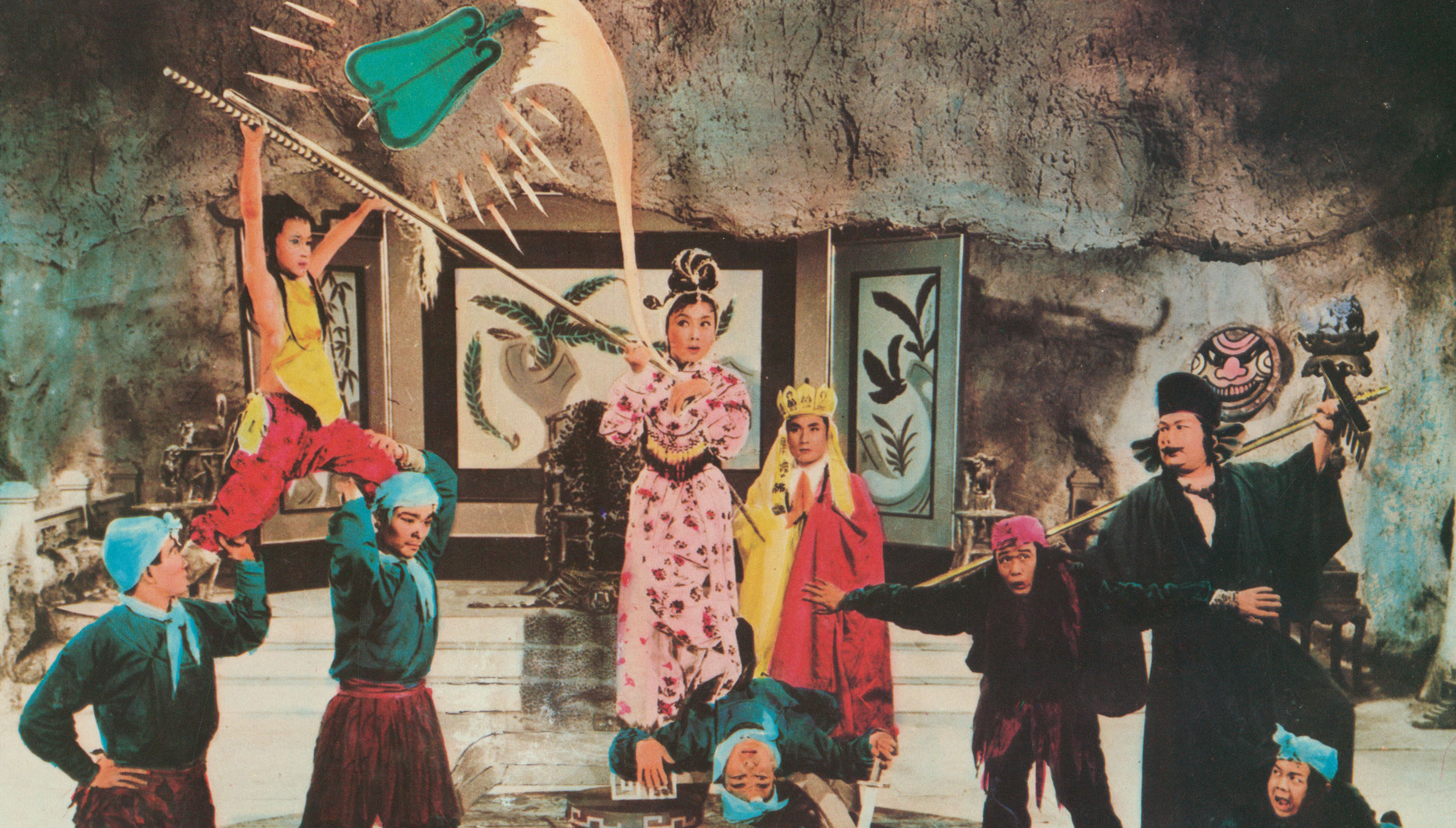
Pioneering Collaborations
The Flaming Mountain (aka The Blazing Volcano)
Dir: Mok Hong-si
Org Story: Wu Cheng’en
Scr: Tu Guangqi
Prod: Wong Cheuk-hon
Prod Cos: Lan Kwong, [South Korea] Hanyang
Cast: Tsui Siu-ming, Kim Hee-gab, Ting Ying, Cheung Yee, Helena Law Lan, Choi Moo-ryong, Lam Kau
1962 | Colour | Digital File | Cantonese | 89min
This 1962 co-production between Lan Kwong Film Company and South Korea’s Hanyang Film Company resulted in Hong Kong’s first Cantonese film shot on Eastman Color Film and in Technicolor Widescreen Format. Mandarin and Korean language versions were also made. The film was directed by Mok Hong-si and assistant-directed by Kim Soo-yong. It stars Lan Kwong’s leading lady Ting Ying and child star Tsui Siu-ming, as well as Korea’s Best Actor Choi Moo-ryong and Best Actress Kim Ji-mi. It performed extremely well at the Korean box office. Scriptwriter Tu Guangqi adapted a segment of the literary classic Journey to the West, where Monk Tripitaka (Choi Moo-ryong) and his disciples attempt to cross the Flaming Mountain, but are hindered by the Ox King (Lam Kau) and his wife and son. Among the cast, Tsui Siu-ming was outstanding. Only 9 years old, his first scene in the film is commanding his men to capture Monk Tripitaka. He looks experienced and scheming, yet retains some childhood naiveté, dominating the scene with his presence. In the film, he puts on a suffering expression to fool Monk Tripitaka, and engages in combat with the Monkey King (Kim Hee-gab), yet is respectful and pious to his mother Princess Iron Fan (Ting Ying), easily handling the entire range of Red Boy’s image of a little monster.
Please note the quality of some segments of this film is poor.
| Date | Time | Venue |
|---|---|---|
| 1/9/2024 (Sun) [Full House] # | 11:00am | Cinema, Hong Kong Film Archive |
The contents of the programme do not represent the views of the presenter. The presenter reserves the right to change the programme should unavoidable circumstances make it necessary.

